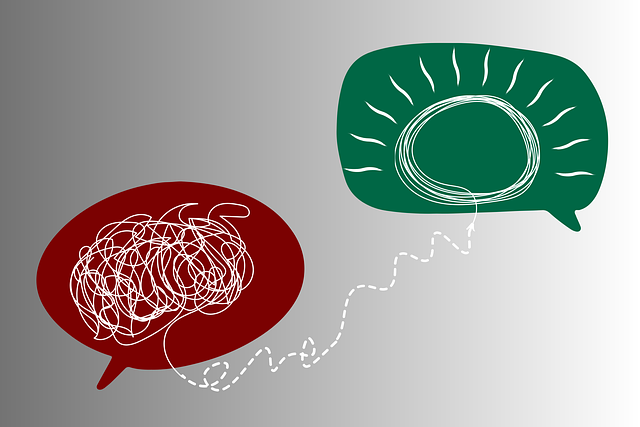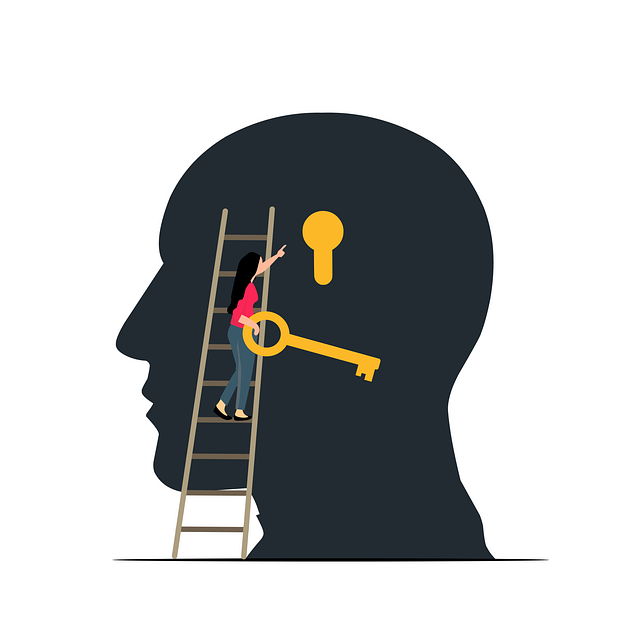Broomfield Children Therapy offers a specialized, holistic approach to mental wellness for young individuals, integrating evidence-based techniques like Compassion Cultivation Practices and Self-Awareness Exercises. Tailored sessions, interactive activities, and personalized guidance help children develop coping mechanisms, improve communication skills, and build self-confidence. Comprehensive evaluation methods, combining both quantitative and qualitative assessments, ensure the program's effectiveness and positive impact on mental health and behaviors. Cultural competency training is emphasized for tailored support of diverse cultural needs, enhancing overall program effectiveness.
“Uncovering the effectiveness of mental wellness programs is crucial for fostering healthy young minds. This article explores a comprehensive evaluation framework, drawing insights from Broomfield Children Therapy’s proven approach. We delve into their unique method, examining how it assesses and improves child therapy outcomes. By understanding their techniques, we uncover powerful tools to measure impact and ensure best practices in program assessment. Discover how these strategies can revolutionize mental health support for young individuals.”
- Understanding Broomfield Children Therapy: An Overview of Their Approach
- Evaluation Techniques: Measuring the Impact and Efficacy of Mental Wellness Programs
- Best Practices for Program Assessment: Ensuring Positive Outcomes for Young Minds
Understanding Broomfield Children Therapy: An Overview of Their Approach

Broomfield Children Therapy is a unique approach designed specifically for young individuals, focusing on fostering mental wellness and emotional resilience. This therapy model recognizes that children’s experiences, thoughts, and behaviors are intricately linked to their overall well-being. By employing a holistic strategy, it aims to address the complex needs of children in a nurturing environment. The practice integrates various evidence-based techniques, such as Compassion Cultivation Practices, Self-Awareness Exercises, and Mind Over Matter Principles, tailored to each child’s specific circumstances.
The therapy sessions at Broomfield Children Therapy are designed to create a safe space where kids can explore their emotions, develop coping mechanisms, and build self-confidence. Through interactive activities and personalized guidance, therapists help children gain insights into their feelings, improve communication skills, and enhance their ability to navigate challenges. This approach not only targets present issues but also equips young minds with lifelong tools to manage stress, regulate emotions, and promote mental wellness.
Evaluation Techniques: Measuring the Impact and Efficacy of Mental Wellness Programs

Evaluation is a critical component of any successful mental wellness program, ensuring that interventions are effective and have a positive impact on participants’ lives. This process involves a range of techniques to measure changes in mental health status, behaviors, and skills acquired through programs like Broomfield Children Therapy. Quantitative methods include surveys and questionnaires designed to assess specific aspects of mental well-being, such as symptoms of anxiety or depression, before and after program involvement. These tools help track improvements and identify areas that require further attention.
Qualitative assessments add depth to the evaluation process by capturing participants’ subjective experiences and perspectives. Focus groups, interviews, and participant journals allow individuals to share their stories, reflecting on personal growth, coping strategies learned (like those enhanced through a Mental Wellness Podcast Series Production), and increased confidence (a key outcome of many therapy programs). This qualitative data provides valuable insights into the program’s real-world impact, offering guidance for future enhancements and demonstrating the value of initiatives aimed at improving mental wellness.
Best Practices for Program Assessment: Ensuring Positive Outcomes for Young Minds

When evaluating mental wellness programs aimed at young minds, best practices demand a holistic and tailored approach. At Broomfield Children Therapy, we understand that each child’s journey towards mental well-being is unique, necessitating assessment methods that go beyond mere quantitative metrics. A comprehensive evaluation should capture qualitative aspects, such as the child’s self-perception, family dynamics, and social interactions, to truly gauge progress. This involves not only assessing symptoms but also fostering open dialogue and empowering children to develop essential coping skills for managing their mental health.
Integrating self-care routine development into program assessment is vital for sustainable positive outcomes. Encouraging young participants to take an active role in their mental wellness fosters a sense of agency and empowers them to navigate life’s challenges. Additionally, healthcare provider cultural competency training plays a significant role in these evaluations. It ensures that the support system surrounding the child—including therapists, parents, and educators—is equipped to address diverse cultural needs, thereby enhancing the overall effectiveness of the program.
Broomfield Children Therapy offers a unique and effective approach to mental wellness programs, as evidenced by their comprehensive evaluation methods. By utilizing various techniques to measure impact and efficacy, this therapy ensures that young minds receive the best possible care. Following best practices for program assessment, Broomfield’s strategies foster positive outcomes, providing a roadmap for other initiatives to emulate. Through these evaluations, we can better understand what works, identify areas for improvement, and ultimately enhance the well-being of children.











